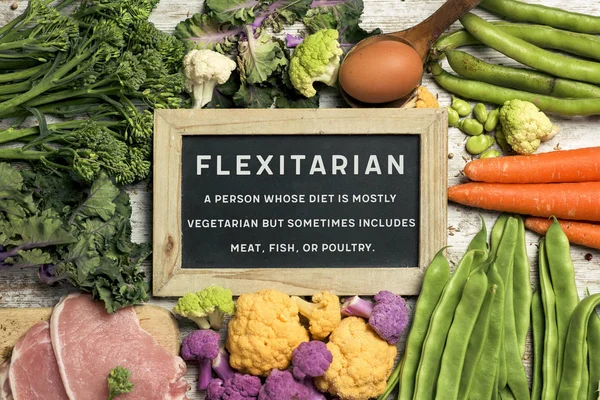
A comparison of popular diets and their effects on overall health
Welcome to our article on a comparison of popular diets and their effects on overall health! With so many diets out there, it can be overwhelming to decide which one to follow. From low-carb to high-protein to plant-based diets, it can be difficult to determine which one will provide the best health benefits for you.
In this article, we’ll be examining some of the most popular diets and their effects on overall health. We’ll look at the science behind each diet and what makes them different, as well as examining their potential benefits and drawbacks. We’ll also explore some common myths surrounding these diets, and provide you with the information you need to make an informed decision about which diet is best for you.
But first, let’s talk about why diet is so important in the first place. The food we eat plays a critical role in maintaining our overall health and well-being. Eating a healthy, balanced diet can help reduce the risk of chronic diseases such as heart disease, diabetes, and cancer. On the other hand, a poor diet can contribute to weight gain, high blood pressure, and other health issues.
So, whether you’re looking to lose weight, reduce your risk of disease, or simply improve your overall health, choosing the right diet is an important step. We hope this article will help you make an informed decision and guide you towards a healthier lifestyle. So, let's dive in and explore the world of popular diets!
Low-carb diets

Low-carb diets have become increasingly popular in recent years. These diets typically involve restricting or minimizing carbohydrate intake and increasing the consumption of protein and fats. One of the most well-known low-carb diets is the ketogenic diet, which involves consuming high amounts of healthy fats, moderate amounts of protein, and very low amounts of carbohydrates.
Low-carb diets have been shown to have numerous benefits for overall health. For example, they can help with weight loss, lower blood sugar levels, and improve insulin sensitivity. Low-carb diets may also help reduce inflammation, improve cholesterol levels, and increase satiety.
However, low-carb diets can also have some drawbacks. For example, they may be difficult to stick to long-term, especially for those who are used to consuming a higher amount of carbohydrates. Some people may also experience fatigue, constipation, and other side effects when first starting a low-carb diet.
It's important to note that not all carbohydrates are created equal. Some low-carb diets may involve eliminating all carbohydrates, including healthy ones like fruits and vegetables, which can lead to nutrient deficiencies if not done properly. Therefore, it's important to focus on consuming whole, nutrient-dense foods and to work with a healthcare professional or registered dietitian when making any significant dietary changes.
Overall, low-carb diets can be a viable option for those looking to improve their health, but it's important to weigh the potential benefits and drawbacks and to make informed decisions based on individual needs and goals.
Mediterranean diet

The Mediterranean diet is based on the traditional eating habits of people living in countries bordering the Mediterranean Sea. This diet emphasizes the consumption of plant-based foods, such as fruits, vegetables, whole grains, legumes, nuts, and seeds, along with healthy fats from olive oil and fatty fish.
Studies have shown that the Mediterranean diet can reduce the risk of heart disease, stroke, and type 2 diabetes, as well as improve overall cognitive function and mental health. The high levels of antioxidants and anti-inflammatory compounds found in Mediterranean foods have been shown to have numerous health benefits.
In addition to promoting health, the Mediterranean diet has been praised for its flexibility and sustainability. Unlike other diets that restrict certain foods or food groups, the Mediterranean diet allows for a variety of foods in moderation, making it easier for people to stick to in the long term.
However, it’s important to note that the Mediterranean diet is not a one-size-fits-all solution. Some people may still struggle with weight loss or health issues even while following this diet. Additionally, the cost of fresh, high-quality ingredients can be a barrier for some people.
Overall, the Mediterranean diet is a good option for those who are looking for a flexible and sustainable way of eating that promotes overall health and well-being.
Vegetarian and vegan diets

Vegetarian and vegan diets have been growing in popularity over the years due to ethical, environmental, and health reasons. While both diets have their differences, they share the commonality of being plant-based and eliminating or reducing the consumption of animal products.
A vegetarian diet eliminates meat, poultry, and seafood but may still include dairy products and eggs. On the other hand, a vegan diet eliminates all animal products, including dairy, eggs, and honey.
Research suggests that vegetarian and vegan diets can offer various health benefits. Studies show that these diets may reduce the risk of chronic diseases such as type 2 diabetes, heart disease, and certain cancers. They are also often higher in fiber, vitamins, and minerals while being lower in saturated fats and cholesterol.
However, it is essential to ensure that vegetarians and vegans get enough nutrients that are commonly found in animal products, such as protein, iron, and vitamin B12. While these nutrients can be found in plant-based sources, individuals following these diets need to pay close attention to their intake and consider supplementing when necessary.
It is also essential to note that following a vegetarian or vegan diet is not a guarantee of good health. Consuming a diet high in processed foods and lacking in essential nutrients can still lead to health issues.
In conclusion, vegetarian and vegan diets can offer various health benefits and can be a sustainable and ethical option for individuals. However, it is essential to ensure that the diet is well-balanced and provides all the necessary nutrients for optimal health.
Paleo diet

The Paleo diet, also known as the Paleolithic or caveman diet, is based on the idea that our bodies are better suited to the foods our ancestors ate during the Paleolithic era. The diet typically consists of lean meats, fish, vegetables, fruits, nuts, and seeds, while avoiding grains, legumes, dairy, and processed foods.
Benefits:
Weight loss: Studies have shown that the Paleo diet can lead to significant weight loss, especially in the first few months of following the diet.
Improved blood sugar control: The diet’s focus on whole, unprocessed foods can improve blood sugar control and insulin sensitivity.
Increased nutrient intake: By focusing on whole foods, the Paleo diet can increase nutrient intake, especially for those who previously relied heavily on processed and convenience foods.
Drawbacks:
Limited food choices: The restrictions on grains, legumes, and dairy can make it difficult to follow the diet long-term, and may lead to nutrient deficiencies if not carefully planned.
Cost: The emphasis on grass-fed, organic, and wild-caught meats can make the diet more expensive than other options.
Sustainability: Critics of the Paleo diet argue that it is not a sustainable long-term solution due to its heavy reliance on meat and animal products, which can be environmentally unsustainable.
Overall, the Paleo diet can be an effective short-term option for weight loss and improved blood sugar control, but may not be sustainable or practical for everyone due to its restrictions and potential cost. As with any diet, it is important to consult a healthcare professional before starting and to ensure adequate nutrient intake.
Whole30 diet

The Whole30 diet is a 30-day program designed to eliminate certain food groups from your diet and reset your eating habits. It was created by Melissa Hartwig and Dallas Hartwig, and has gained popularity in recent years.
The Whole30 diet focuses on consuming whole, unprocessed foods and eliminating added sugars, alcohol, grains, legumes, dairy, and processed foods. The diet is meant to be a short-term reset and not a long-term eating plan.
Proponents of the Whole30 diet claim that it can lead to weight loss, improved digestion, increased energy, and better sleep. However, critics argue that the diet is too restrictive and could lead to nutrient deficiencies.
During the 30-day period, dieters are encouraged to eat foods such as meats, seafood, vegetables, fruits, and healthy fats. They are also encouraged to read food labels and avoid any foods with added sugar or processed ingredients.
The Whole30 diet has gained popularity among people looking for a short-term diet plan that focuses on whole foods and eliminates certain food groups. However, it may not be a sustainable long-term eating plan for everyone.
Overall, the Whole30 diet can be a good way to reset your eating habits and focus on consuming whole, unprocessed foods. However, it is important to consult with a healthcare professional before starting any new diet program to ensure that it is safe and appropriate for your individual needs.
Weight Watchers

Weight Watchers is a weight loss program that has been around for over 50 years. It works on a points system, where every food is assigned a point value based on its nutritional content. The program encourages participants to make healthier food choices by assigning fewer points to healthier foods, such as fruits and vegetables, and more points to less healthy foods, such as processed snacks and desserts.
Weight Watchers has been praised for its flexibility, as participants are allowed to eat whatever they want as long as they stay within their daily point allotment. This makes it easier for people to stick to the program and make it a sustainable lifestyle change.
Research has shown that Weight Watchers can be an effective way to lose weight and improve overall health. In fact, a study published in The Lancet medical journal found that people who followed the Weight Watchers program for one year lost more weight than those who received standard weight loss advice from their doctors.
However, it's worth noting that the program does require participants to pay a fee for membership and can be time-consuming to track points and attend meetings.
Overall, Weight Watchers can be a good option for those looking to lose weight in a healthy and sustainable way, as long as they are willing to commit to the program and its requirements.
DASH diet

The DASH (Dietary Approaches to Stop Hypertension) diet was created to help individuals lower their blood pressure and prevent hypertension. This diet is rich in whole grains, fruits, vegetables, and low-fat dairy products, and is also low in saturated and trans fats, cholesterol, and added sugars. Here are some of the benefits and potential drawbacks of the DASH diet:
Benefits:
Lower blood pressure: One of the main benefits of the DASH diet is its ability to lower blood pressure, which can reduce the risk of heart disease, stroke, and other health problems.
Balanced diet: The DASH diet emphasizes a balanced diet that includes a variety of nutrient-rich foods, which can help individuals achieve and maintain a healthy weight and improve overall health.
Improved cholesterol levels: The DASH diet is low in saturated and trans fats, which can help lower LDL ("bad") cholesterol levels and improve overall cholesterol levels.
Potential drawbacks:
Limited meat options: The DASH diet encourages individuals to limit their intake of red meat, which may be difficult for individuals who prefer meat-based diets.
Difficulty sticking to the diet: The DASH diet may be difficult to stick to for individuals who are used to consuming high levels of sodium, added sugars, and processed foods.
Overall, the DASH diet is a balanced and nutritious approach to eating that can help individuals improve their health and lower their risk of certain diseases. It is important to consult with a healthcare provider or registered dietitian before starting any new diet to determine if it is appropriate for your individual needs and health goals.
Flexitarian diet

The flexitarian diet is a plant-based diet that allows for occasional consumption of meat and other animal products. It's a popular choice for those who want to reduce their intake of meat but don't want to completely eliminate it from their diet. The word "flexitarian" is a combination of "flexible" and "vegetarian," which accurately reflects the diet's flexible nature.
The flexitarian diet is focused on eating whole, plant-based foods such as fruits, vegetables, whole grains, legumes, nuts, and seeds. It's also recommended to limit the intake of processed foods, added sugars, and refined grains. Meat is not completely eliminated from the diet, but it's consumed in smaller amounts and less frequently than in a typical Western diet.
There are several health benefits associated with following a flexitarian diet. One of the primary benefits is weight management. Studies have shown that those who follow a plant-based diet, including a flexitarian diet, tend to have a lower body mass index (BMI) than those who consume a Western diet. Plant-based foods are generally lower in calories and higher in fiber than animal-based foods, which can help with weight management.
Another benefit of the flexitarian diet is improved heart health. Plant-based diets have been shown to reduce the risk of heart disease, as they're typically lower in saturated and trans fats than animal-based diets. The flexitarian diet encourages the consumption of heart-healthy foods like fruits, vegetables, and whole grains, while limiting the intake of processed and fatty meats.
In addition, the flexitarian diet can improve overall gut health. Plant-based foods are high in fiber, which is important for maintaining a healthy gut microbiome. A diverse and healthy microbiome can lead to improved digestion, reduced inflammation, and a stronger immune system.
It's important to note that while the flexitarian diet allows for the consumption of meat, it's still recommended to choose lean sources of protein like chicken, fish, and plant-based sources like beans and legumes. It's also important to ensure that the diet is well-balanced and includes a variety of nutrient-rich foods.
Overall, the flexitarian diet can be a healthy and sustainable choice for those who want to reduce their intake of meat and incorporate more plant-based foods into their diet.
Conclusion
In conclusion, there are a variety of popular diets available that have been shown to have different effects on overall health. Low-carb diets, such as the Atkins diet, have been associated with weight loss and improved blood sugar control, but may also be high in saturated fats and low in fiber. The Mediterranean diet, which emphasizes fruits, vegetables, whole grains, and healthy fats, has been linked to a reduced risk of heart disease, cancer, and other chronic conditions. Vegetarian and vegan diets can be healthy if done properly, as they are often low in saturated fat and high in fiber, but may require careful attention to nutrient deficiencies.
The Paleo and Whole30 diets focus on whole, unprocessed foods and may be beneficial for some individuals, but can also be high in animal products and low in important nutrients like calcium and fiber. Weight Watchers is a well-known program that emphasizes portion control and accountability, but may not be sustainable for everyone. The DASH diet, which stands for Dietary Approaches to Stop Hypertension, emphasizes fruits, vegetables, whole grains, and low-fat dairy products, and has been shown to lower blood pressure and reduce the risk of heart disease.
Finally, the Flexitarian diet offers a flexible approach to healthy eating, emphasizing plant-based foods while allowing for some animal products in moderation. Ultimately, the best diet for each individual depends on a variety of factors, including personal preferences, medical history, and lifestyle. Consulting with a healthcare provider or registered dietitian can help ensure that a chosen diet is safe, effective, and sustainable in the long-term.
 Reviewed by jadan
on
March 10, 2023
Rating:
Reviewed by jadan
on
March 10, 2023
Rating:




No comments: